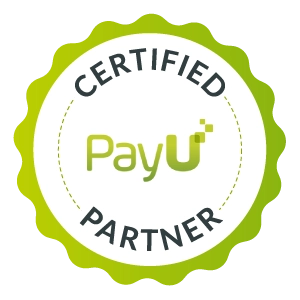
In the ever-evolving digital marketplace, visibility is key. For small businesses trying to carve out a niche, search engine optimization (SEO) is no longer optional—it is essential. This blog, titled Why SEO is Essential for Small Business Success, dives into the strategies that matter most and explores how SEO directly supports the broader benefits of digital marketing for small businesses.
What is SEO? (Why SEO is Essential for Small Business Success)
Search Engine Optimization (SEO) is the practice of optimizing a website to rank higher in search engine results pages (SERPs). It involves improving both on-page and off-page elements to drive organic traffic from search engines like Google, Bing, and Yahoo.
SEO includes a variety of techniques such as:
- Keyword research
- Content creation
- On-page optimization (titles, headers, meta descriptions)
- Technical SEO (site speed, mobile-friendliness, crawlability)
- Link building
For small businesses, implementing effective SEO can dramatically increase visibility, attract new customers, and ultimately boost revenue.
How SEO Works: A Quick Overview
SEO works by aligning your website’s content and structure with the algorithms used by search engines. When done correctly, this alignment helps search engines understand what your site is about and rank it accordingly for relevant queries.
Key components include:
- Relevance: Matching content to searcher intent
- Authority: Gaining trust through backlinks and credible content
- User Experience: Ensuring easy navigation and fast loading speeds
These elements combine to improve rankings and drive qualified traffic to your site.
Why SEO Matters for Small Businesses
1. Cost-Effective Marketing
Unlike paid ads, SEO generates organic traffic without ongoing costs per click. Once you achieve a high ranking, you can attract visitors without paying for every interaction.
2. Builds Credibility and Trust
Websites that appear at the top of search results are often perceived as more trustworthy. SEO helps position your brand as an authority in your niche.
3. Drives Targeted Traffic
SEO helps attract users actively searching for your products or services. This leads to higher conversion rates than traditional advertising.
4. Improves Local Presence
Local SEO techniques such as optimizing your Google Business Profile can help your business appear in local search results and maps—essential for brick-and-mortar businesses.
5. Enhances User Experience
Google prioritizes websites that are fast, secure, and mobile-friendly. These improvements not only help rankings but also increase customer satisfaction.
SEO and the Benefits of Digital Marketing for Small Businesses
When discussing the benefits of digital marketing for small businesses, SEO stands out as a foundational strategy. Here’s how SEO fits into the bigger picture:
- Increased Online Visibility: Helps small businesses compete with larger companies by appearing in organic search results.
- Better ROI: SEO often delivers a higher return on investment compared to other digital channels.
- Sustainable Growth: While it takes time, SEO provides long-term results with consistent effort.
- Brand Awareness: As you rank for more keywords, more people become familiar with your business.
Key SEO Strategies for Small Business Success
1. Keyword Research
Identify keywords that potential customers use when searching for your products or services. Use tools like Google Keyword Planner, SEMrush, or Ubersuggest.
2. On-Page Optimization
Ensure that each page of your website is optimized for target keywords. Focus on:
- Title tags
- Meta descriptions
- Header tags (H1, H2, H3)
- Internal linking
3. Content Creation
Publish high-quality content regularly. Blogs, FAQs, how-tos, and product descriptions are great ways to target relevant keywords and provide value to your audience.
4. Technical SEO
Make sure your website is:
- Mobile-friendly
- Fast loading
- Secure (HTTPS)
- Easy to navigate
5. Local SEO
Optimize for location-based searches by:
- Claiming and optimizing your Google Business Profile
- Encouraging customer reviews
- Adding your business to local directories
6. Link Building
Earn backlinks from reputable websites in your industry. These act as “votes of confidence” for your site and help improve rankings.
Measuring SEO Success
Track performance using tools like:
- Google Analytics: For traffic, bounce rate, and conversions
- Google Search Console: For keyword rankings and site health
- SEMrush or Ahrefs: For competitor analysis and backlink tracking
Key metrics include:
- Organic traffic growth
- Keyword ranking improvements
- Click-through rates (CTR)
- Conversion rates
Common SEO Mistakes to Avoid
- Keyword Stuffing: Overusing keywords makes content unreadable
- Ignoring Mobile Optimization: Majority of searches happen on mobile
- Neglecting Technical SEO: Poor site structure can hinder crawlability
- Inconsistent NAP (Name, Address, Phone Number): Hurts local SEO
- Buying Backlinks: Can result in penalties from Google
Real-Life SEO Success Stories
Example 1: Local Bakery
A small bakery optimized its site with location-specific keywords and started a blog on baking tips. Within six months, organic traffic grew by 120%, and online orders increased significantly.
Example 2: Home Repair Services
A local handyman service focused on SEO for “emergency plumbing” and “home repairs near me.” Their Google Business Profile was optimized, leading to a surge in calls and service bookings.
Future of SEO for Small Businesses
SEO continues to evolve. Staying updated with algorithm changes and emerging trends is key. Future-focused strategies include:
- Voice Search Optimization
- AI and Machine Learning in SEO tools
- E-E-A-T (Experience, Expertise, Authoritativeness, Trustworthiness)
- Video and Visual Search Optimization
Final Thoughts
In an increasingly competitive landscape, small businesses need every edge they can get. SEO provides a level playing field where even the smallest brand can gain visibility, attract customers, and grow steadily. It is not just a marketing tactic; it is a vital investment for long-term success.
By understanding and applying solid SEO practices, small businesses can unlock the full benefits of digital marketing for small businesses, ensuring sustainable growth and a strong online presence.













